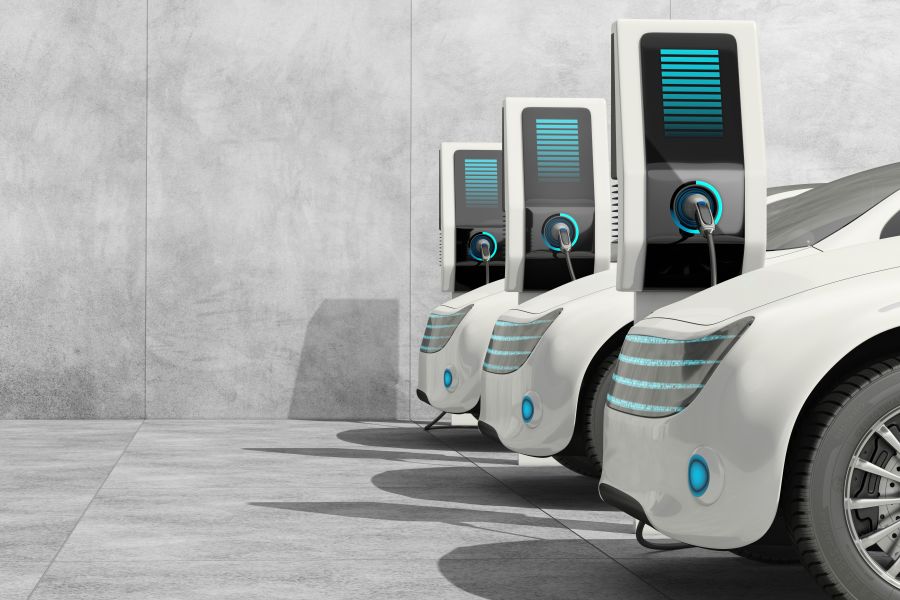IRS/Energy Dept Issue Guidance, List of Cars Eligible for Revised EV Credit

On its website, the IRS has issued guidance on accessing the Inflation Reduction Act of 2022’s tax credits for electric vehicles (“Plug-in Electric Drive Vehicle Credit at a Glance”), while the Energy Department listed credit-eligible cars, trucks, and SUVs (“List of Vehicles with Final Assembly in North America”) on 8/16/22, just hours after President Biden signed the law.
Credit Amounts
The Act introduces
- a $4,000 tax credit for the purchase of used electric vehicles (EVs), and
- updates the $7,500 credit for new EVs . . .
Vehicle Price Caps
A major change however is the introduction of caps on the price of new vehicles, based on the buyer’s income, that qualify for that credit. The caps imposed are:
- $55,000 for electric cars, and
- $80,000 for SUVs and pickup trucks.
Final Assembly of EVs Must Take Place in North America
The legislation also mandates that, as of 8/16/22, final assembly of EVs takes place in North America in order to qualify for the new-vehicle incentive. The Act also provides manufacturing incentives to encourage onshoring of supply chains for critical minerals and batteries. The requirement regarding final-assembly is the only change that takes effect immediately after 8/16/22, the Treasury Department stated in a list of frequently asked questions on the credits. Rather, most of the law’s changes will be phased-in over a period of time beginning in 2023.
Tax Credits for Used or Previously Owned Cars
Beginning 1/1/23, consumers may be eligible for a tax credit for used or previously owned cars and businesses may qualify for a new commercial clean-vehicle credit, according to a Treasury statement.
Consult VIN to Ascertain Qualification for the Credit
According to Treasury’s FAQs and the IRS guidance, buyers and auto dealers should consult the EV’s VIN to determine whether it qualifies for the Act’s “Clean Vehicle Credit”. This is a name change from the previous “Qualified Plug-In Electric Drive Motor Vehicle Credit” used in previous versions of the legislation so as to match existing IRS §30D guidance. This will allow consumers to ascertain the eligibility of vehicles whose manufacturers build the same model in multiple countries.
Buyer’s Modified AGI Caps
The Clean Vehicle Credit will not be allowed for any tax year if the lesser of the modified adjusted gross income (MAGI) of the taxpayer for the current or preceding year exceeds the relevant threshold amount:
- $300,000 for taxpayers filing joint returns or surviving spouses,
- $225,000 for heads of household, or
- $150,000 for other taxpayers.
MAGI is the sum of adjusted gross income augmented by any amount excluded from gross income under
- §911 (foreign earned income and housing exclusions),
- §931 (income from Guam, American Samoa, or the Northern Mariana Islands), and
- §933 (income from Puerto Rico).
Other Items of Note
The Treasury FAQs indicate that an individual who entered into a purchase contract prior to 8/16/22 but did not take possession of the vehicle until that date could claim the credit “based on rules that were in effect before the Inflation Reduction Act’s enactment.”
In creating their list of EVs that currently qualify for either credit, the Energy Department said it would be modifying its list in 2023, when further changes prescribed by the law are set to take effect, such as:
- the new income caps, and
- a requirement that components of vehicle batteries be extracted or processed domestically or in a country with a free trade deal with the U.S.
Buyers who signed a binding agreement to purchase a qualifying car prior to 8/16/22 could also be eligible for the credits as they existed prior to the Inflation Reduction Act went into effect, the IRS stated in the guidance that included a separate list of cars that are newly eligible for the credit, assuming they were bought on or prior to 8/16/22. These are inclusive of high-end, foreign-made models that would not meet the vehicle price caps imposed under the Inflation Reduction Act.
The electric vehicle tax credits in effect prior to the Inflation Reduction Act was enacted were valued between $2,500 and $7,500, depending on battery capacity. Credits were no longer available for purchases made after the manufacturer reached a limit of 200,000 vehicles sold . . . a cap which will remain in place until the start of 2023.
(This is Blog Post #1258)


